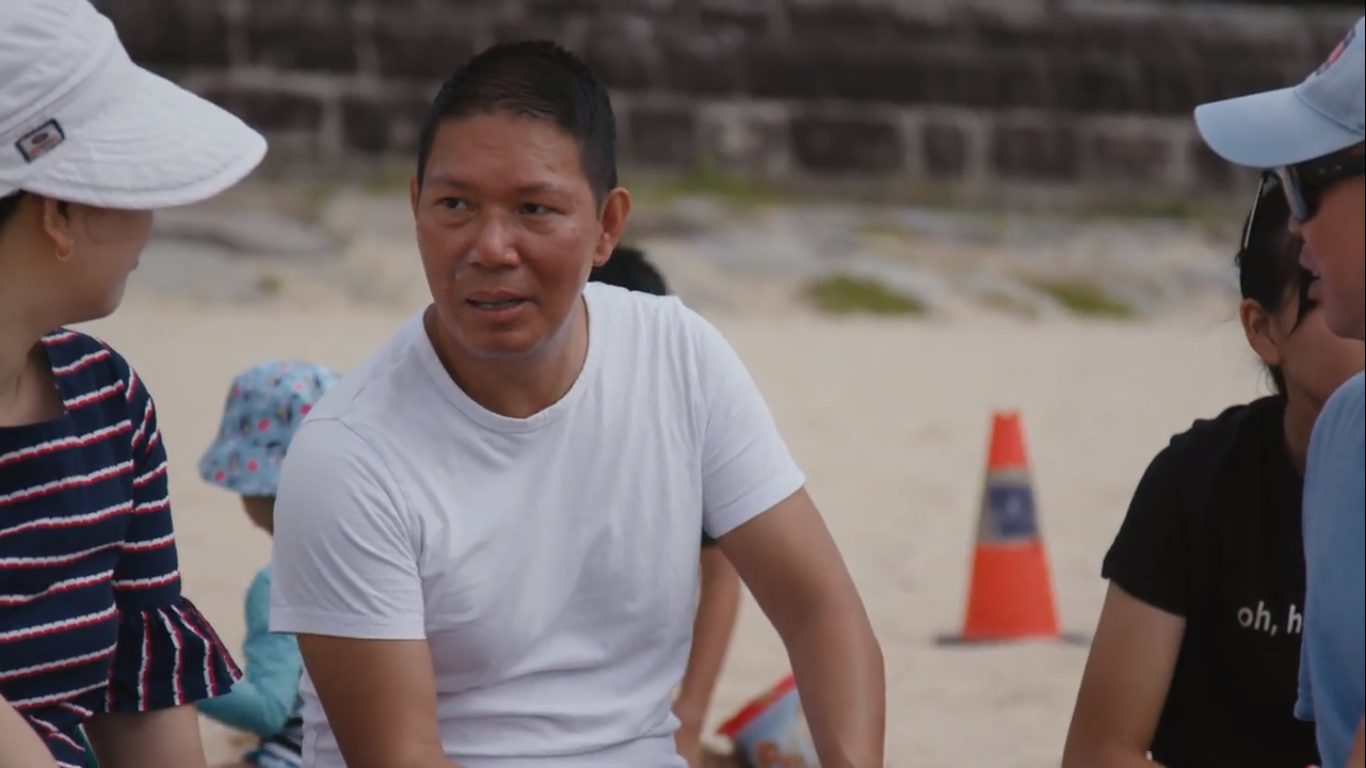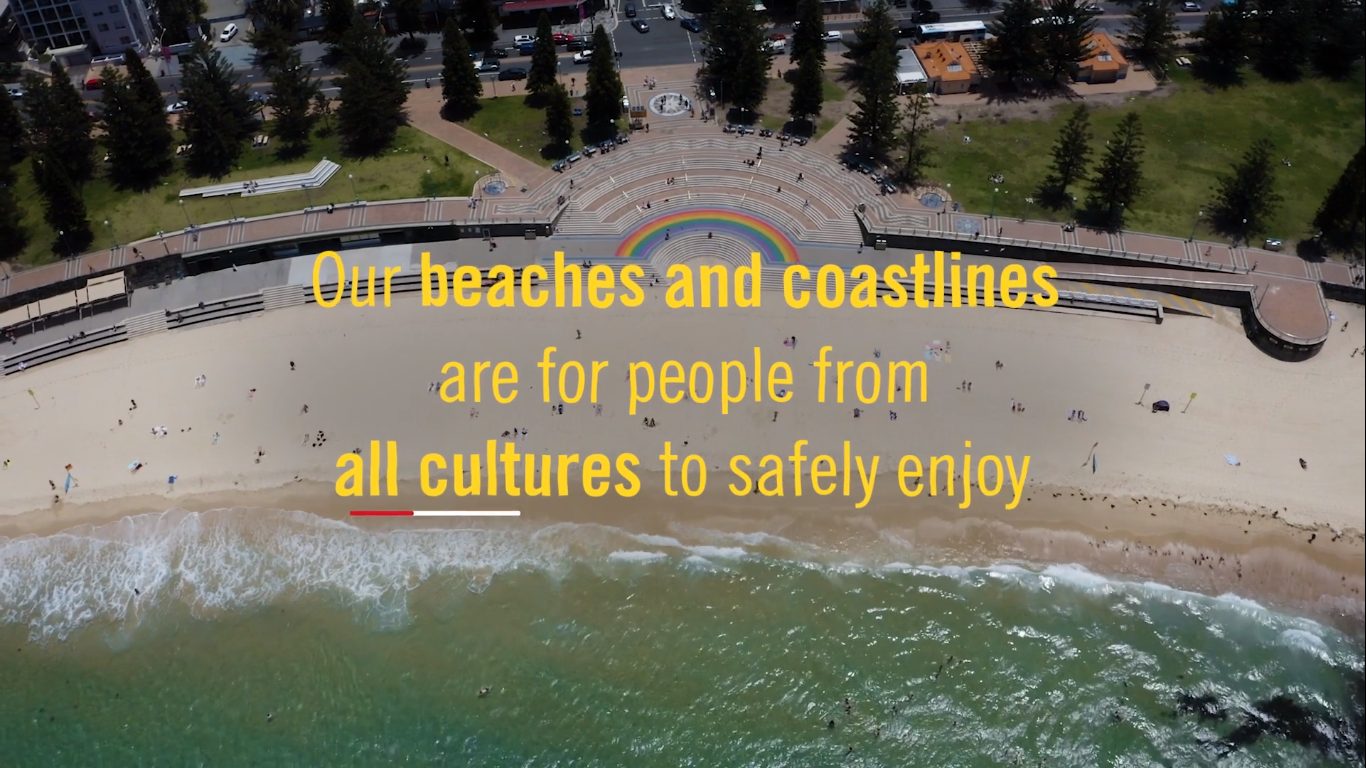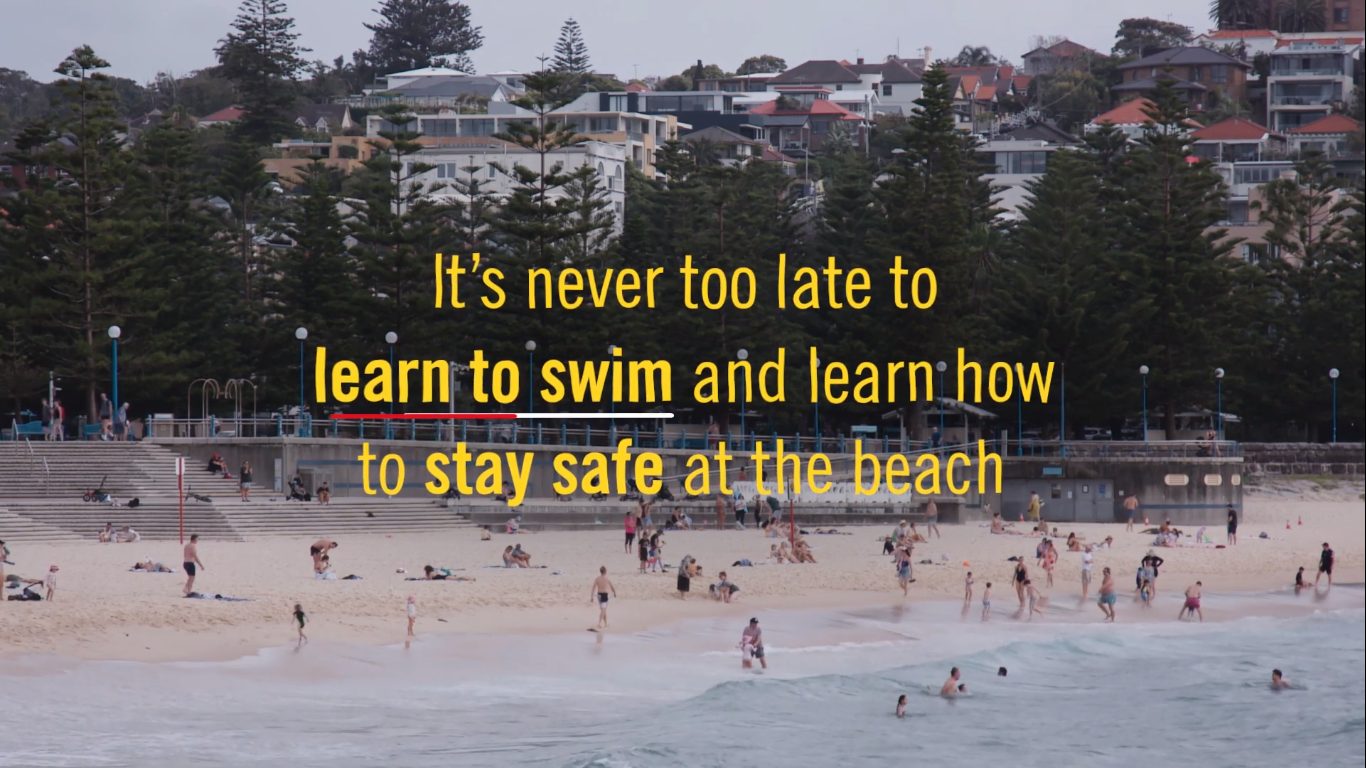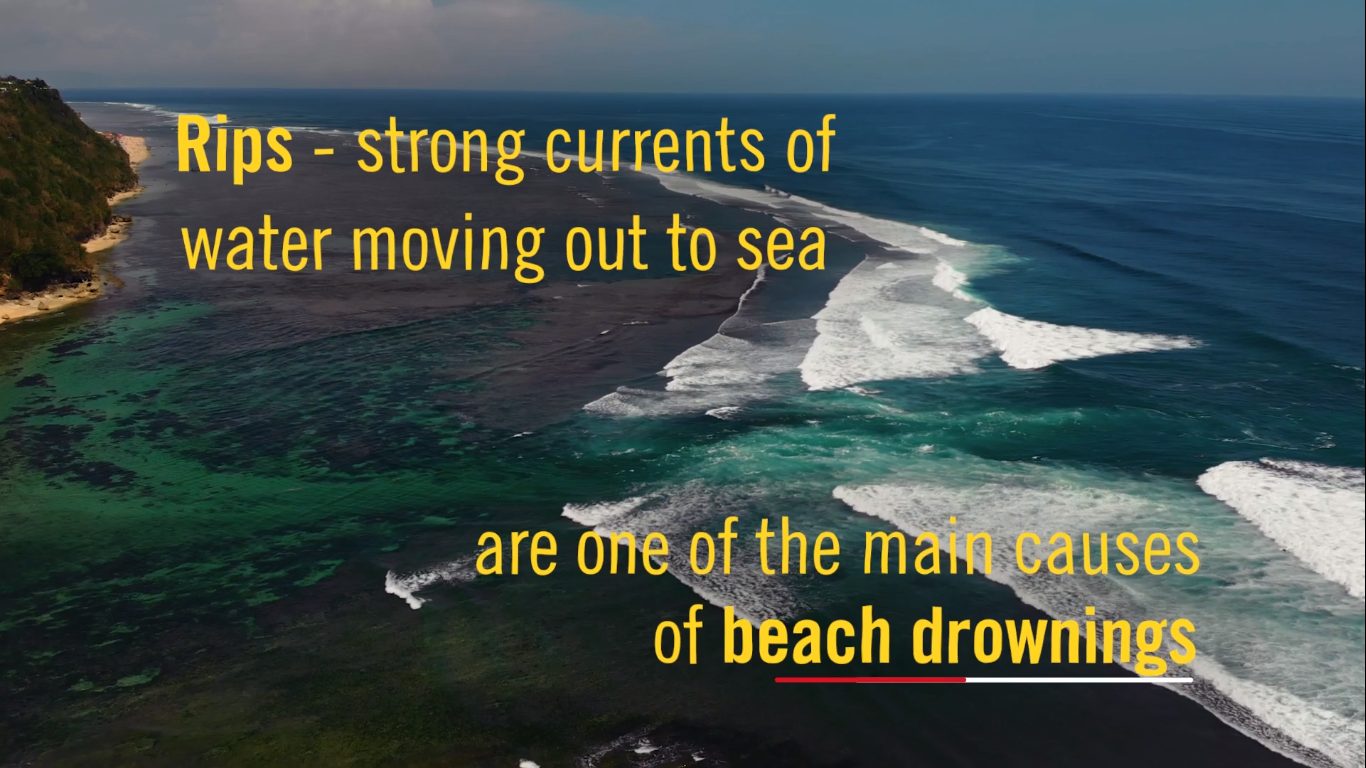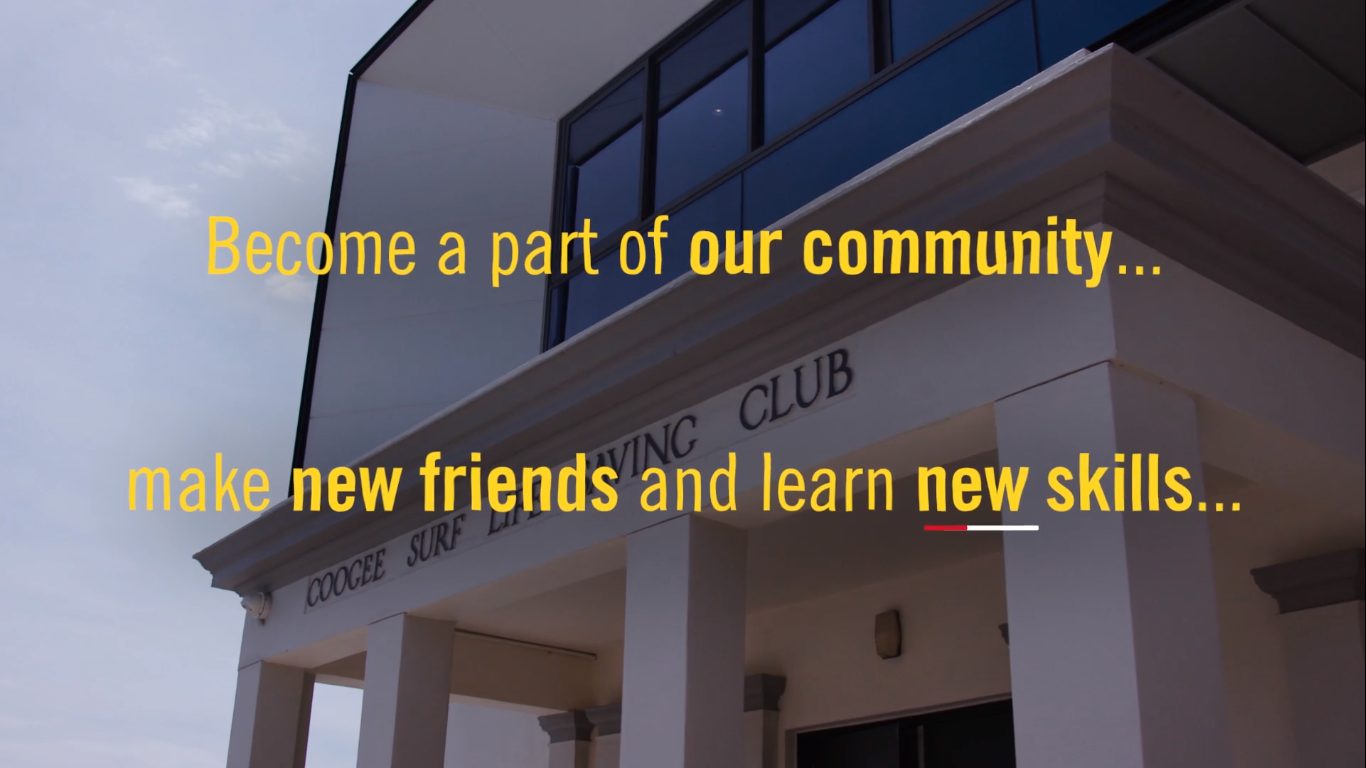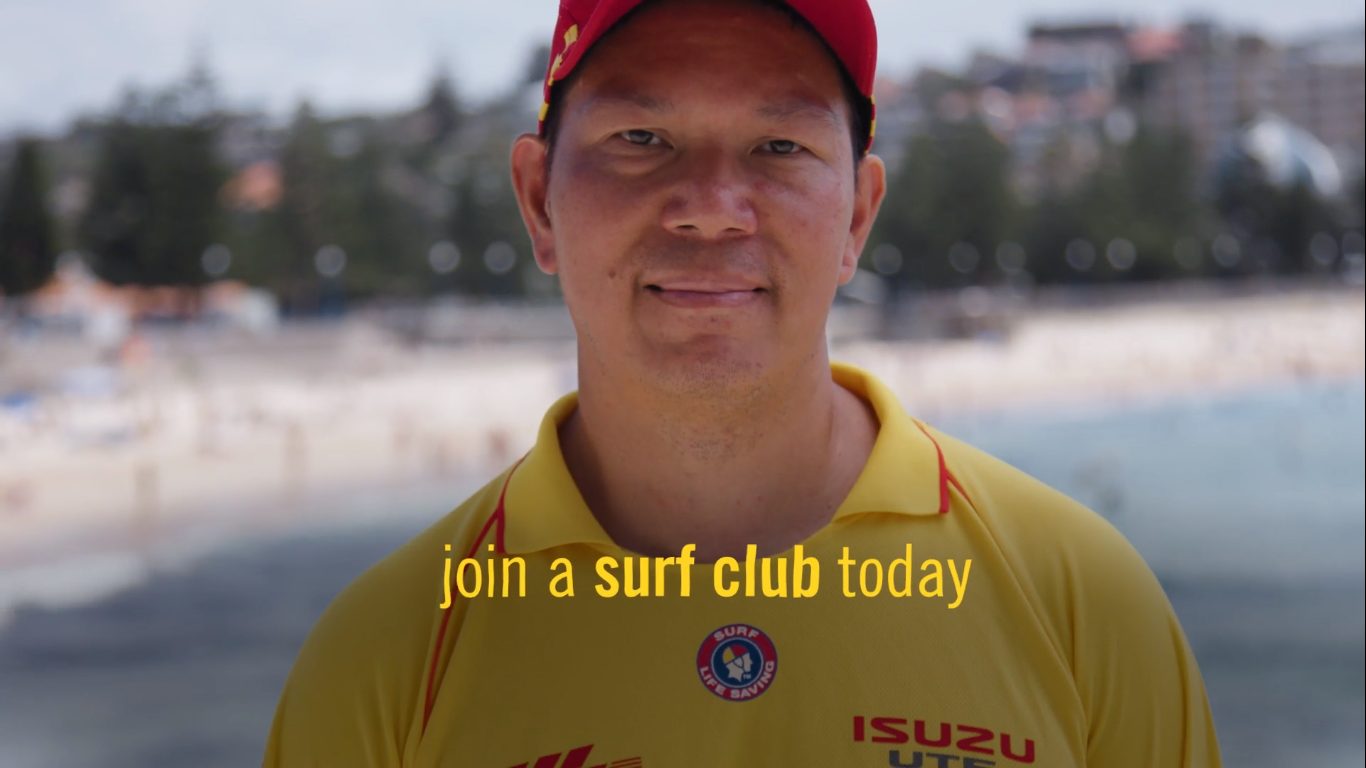Phil's Story
Coming to Australia as a Vietnamese refugee, Phil was traumatised by his experiences on the ocean. Now, Phil is a proud Surf Lifesaver and wants to share his story to help others.
Q+A With Lifesaver Phil Hua
In those early days after you arrived in Australia you mentioned that you would not go anywhere near the ocean – was this because of your experiences coming to Australia on the refugee boat or were there other factors as well?
Part of the fear was just becuase of our own culture and how we interact, or don’t interact with water. The boat experience was a big part of it. We went through a few storms in the sea, one was pretty bad and I was terrified of the ocean. I still have PTSD with high wind sounds and the feeling of being trapped in a room with the wind outside. I remember being part of the Vietnamese group in Newtown/Marrickville Sydney, the adults took us to the national park in Bundeena. We were allowed to play on the beach but no one got in the water, this was when I was around 12. This is normal back then for Vietnamese communities, spending time on the beach was normal but not actually going into the water.
When did you first start going to the beach and getting in the water? What sort of beaches did you go to?
In high school (between 12 – adult) I use to go to Cronulla and Bondi beach but we didn’t know about flagged areas. We were naive about water conditions and waves. Usually, we would swim where there were no waves, but we only stayed near the shore, standing and pretending to catch waves. I remember all of us, the “ethnic kids” use to lose our footing, we couldn’t touch the bottom and then we would just turn around and try to swim back pretty quickly. We made it because we responded immediately, part of the fear I guess when we can’t feel the bottom – no one educated us about waves, rip currents or changing water condition.
How old were you when you really started to get into the ocean and beach life?
I believe when I was in my mid 20s, I started swimming in the ocean, but it’s taken years and very small steps. It was a dream for me to overcome my fears and a goal. First, I took up swimming in my 20s because of a sports injury. In the pool, I started with dog paddle, breaststroke, then I had friends who would swim in the ocean. I then tried swimming in the ocean too, but I swam where the water was dead flat like Gunnamatta bay with other ethnic friends and I mainly used the pool. When I moved to Abu Dhabi, in my 30s, I started swimming with a group. We swam in the ocean which is pretty flat over there, no rips (just watch out for jet skiers which was more dangerous!). I got better at swimming and increased my confidence and I even entered ocean swimming competitions over there.
How did you face your fears and how did your view of the ocean change?
What helped me face my fears was the friends I have, it was the companionship and helping me increase my ocean experience. What I was still fearful of is large swells until I came home and joined the Coogee club, did the Bronze training program and then trained with a group regularly at Maroubra. I got better and better, even swimming in big swells because there were experienced people around me that were doing it and we could help each other out. I went to Port Macquarie and made a few good friends who I also swam with. They were fearless ocean swimmers, this really started help me to overcome my fears. My fear is getting in trouble and being alone out there, that stems from the boat days, if I have others with me, it’s not too bad in high swells. Having said that, there is a limit to the conditions that I won’t go in though. I respect the ocean and being an educator for Surf Life Saving has really helped me to understand that.
How do you feel your experiences relate to the general Vietnamese community?
The general Vietnamese community don’t have access to the ocean and they may not have access to cultures that love the ocean. So their skills and experience is limited, their interaction of the beach is from their homeland – swim where there are no waves, this gets passed down from generation to generation and unfrotunetly when you come to Australia that information can land you in trouble. However with the messaging and campaign today, it seems that information is filtering to the younger generation of Vietnamese who don’t live near a beach. Although I know the younger generation are more likely to have the knowledge, the problem comes in the water, if they get into trouble, their emotion will take over and guide their anxiety which usually will get them into trouble. Actual practical experience at the beach is what is needed.

